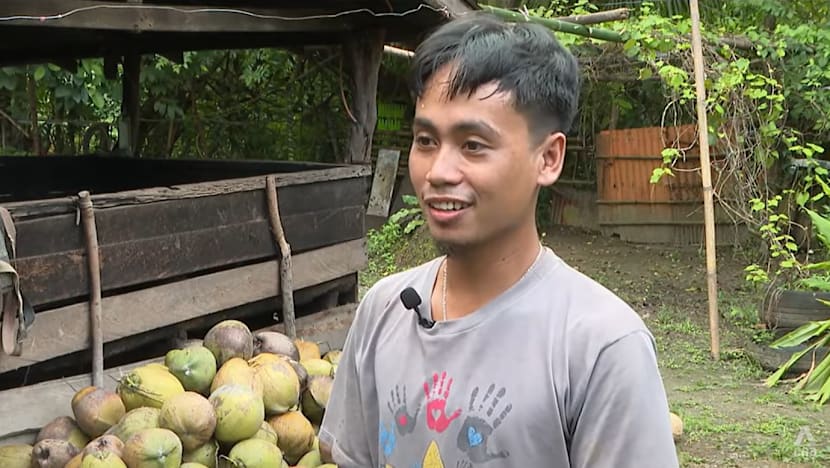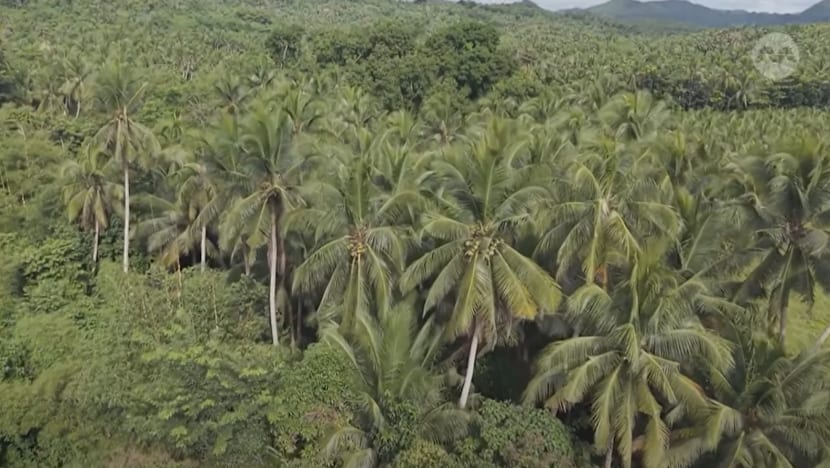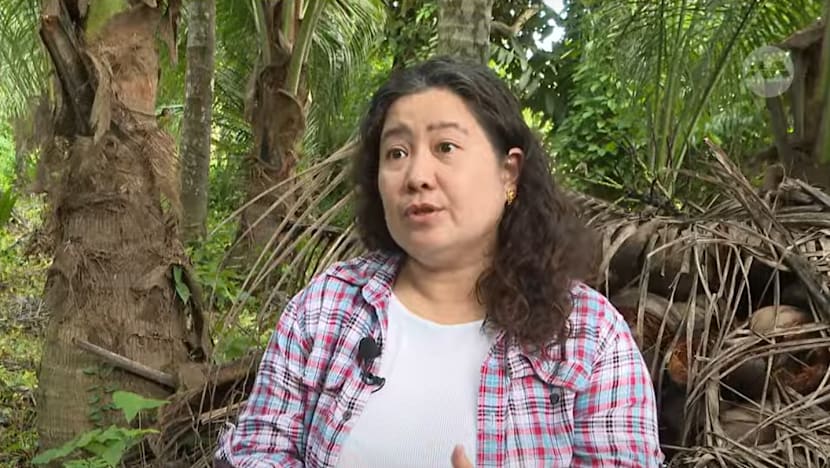Philippine coconut farmers' woes in the spotlight at World Coconut Congress
Coconut oil is the Southeast Asian nation’s top agricultural export, but prices can vary widely such as when supply dwindles during typhoons.

Philippine coconut farmer Alexis Rea.

This audio is generated by an AI tool.
ATIMONAN, Philippines: Coconut farmers and workers in the Philippines like Alexis Rea have long struggled to reap the full economic benefits of their harvests.
Five years ago, he left his job near the capital Manila and travelled about 200km to work on farms in his hometown of Atimonan in Quezon province, in order to be closer to his wife and children.
While his take-home pay is higher now, he told CNA finding work would be easier if there were more coconut farms.
“I earn just enough for our daily needs, so when one job on a coconut farm ends, I have to find another,” he added.
The Philippines is the world’s second-largest coconut producer after Indonesia, with coconut oil as its top agricultural export. Coconut oil is also tariff-free in the latest list of exemptions under United States President Donald Trump's tariff impositions.
An average of US$2 billion in coconut-derived products are exported yearly from the country, providing a livelihood to about 3 million Filipino farmers.
Government data as of 2023 showed the country has 3.6 million hectares of coconut farms.
But factors like market volatility, ageing trees, climate change, and competition from palm oil continue to undermine government efforts to boost supply and revitalise the industry.
These issues were brought up at the recent World Coconut Congress in Manila, which has given the industry a chance to discuss the future of one of the planet's most versatile tropical commodities.
SENILE TREES
Philippine President Ferdinand Marcos Jr has said he wants 100 million coconut trees planted nationwide by 2028, when his term in office ends.
Ageing coconut trees are a major problem for existing farms – those older than 50 years produce less than half the potential yield of younger trees.

REPLANTING EFFORTS
Some farmers would rather secure state permits to cut down ageing coconut trees and instead replace them with other crops such as dragon fruit.
Farm owner Rose Pena said the profits from her family farm cannot provide for their needs, and innovating is capital-intensive.
She has ventured into other coconut-based products like sauces, but only as a hobby.
“More investments are needed to process coconut-derived products, not just oil but even non-food items. Farmers can work in the processing plants too. They will be inspired to plant if they have a sure market,” she added.

With strict product entry guidelines, the European Union is the Philippines' primary international market, industry leaders told CNA. Philippine coconuts are among the products exempted from tariffs under EU's GSP+ scheme.
But beyond increasing yield, farmers said their most pressing need is price regulation.
The prices of coconut oil can vary widely, such as when supply dwindles during typhoons. Competition from alternatives such as palm oil can also suppress demand.
GLOBAL COMPETITIVENESS
At the World Coconut Congress that took place from last Wednesday (Sep 24) to Friday, maintaining global competitiveness was a major talking point.
Industry leaders stressed the need to build a sustainable supply and slow the conversion of land to palm oil plantations.
“This is the most pressing issue – we don’t have the coconuts to serve our consumer (export) markets,” said Marco Reyes, chairman of the United Coconut Association of the Philippines.
Unlike farmers' cooperatives, large firms have more capital to invest in technology, ensuring their products are of export quality.
Part of the Philippine government's plan is to create more shared processing facilities to help farmers produce value-added products on their own.
But industry executives say farmers still risk going bankrupt when global prices fall drastically, while companies are more able to absorb these temporary shocks.
Others said state policies must focus on increasing domestic demand to avoid being held hostage to world price volatility.
This includes increasing the share of coconut oil-derived biodiesel in the mandatory local fuel blend.
Until these market challenges are resolved, coconut farmers like Pena and Rea will continue to struggle – and economic opportunities will remain elusive.
















